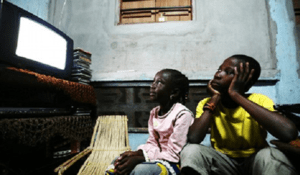LRC to redefine outdated Ghanaian child protection system
 The Legal Resources Centre (LRC) has unveiled a three-year project seeking to redefine the Ghanaian child protection system which it describes as “out-dated” and “modeled along European” cultures rather than home-grown traditions.
The Legal Resources Centre (LRC) has unveiled a three-year project seeking to redefine the Ghanaian child protection system which it describes as “out-dated” and “modeled along European” cultures rather than home-grown traditions.
The current system has become “ineffective and not suited to the needs of citizens,” LRC officials have said, with a call for legal and policy changes to create an indigenous child protection system that is fit for the country.
Speaking to the Ghana News Agency on the side-lines of a training programme for 14 paralegals in Wa, Mr Clarke Noyoru, a Private Legal Practitioner and Resource Person, said it is important to look at a comprehensive system that adequately protect rights of Ghanaian children.
The session highlighted roles of paralegals in protecting the rights of children in Ghana under a project dubbed: “Justice for children: “Bridging the gap between legislation and practice”.
It aimed to influence national institutions to be more transparent, accountable, human rights-oriented and consistent with the broad outlook of Ghana’s justice for children policy.
The LRC with the support of the European Union is implementing the three-year project expected to train 150 paralegals in 55 districts nationwide.
“This project is looking at how we can ensure that we are able to get community leaders, families and any member from the community to participate in the upbringing of the child,” Mr Noyoru said.
He added that, even though the European laws tap into the Ghanaian traditional values, standards of protective practices and community ethics, “They can be difficult to understand and apply”.
“The kind of child protection system we are looking at has to do with the communal system of living where every child belongs to the community,” he added: “It takes families, parents to bring forth a child but it takes the whole community to raise a child”.
He said Ghana seemed to be building a family structure leaning more towards the nuclear family system instead of the extended family system which used to have a very comprehensive system of protecting children.
With the nuclear family system which is European based, he said “if your child does something wrong, I dare not correct that child because I may incur the wrath of a parent”.
But with extended family system when a child does something wrong the community, not only the parents, have that duty to correct the child.
“So we will be training a lot of paralegals to make sure that they are able to provide some kind of legal education or legal assistance and be linking up with lawyers in the regions to be able to do this task”.
Mr Enock Jengre, the Project Officer, explained that the LRC is a non-governmental organization with significant community-based grassroots initiatives including child protection rights.
“It works to ensure social progress and development using law, justice, development and good governance,” he added.
The LRC strives to develop human rights capacity in national policy-making institutions and works to link community concerns to the institutions to ensure that less privileged populations are considered in decisions made at the national and regional levels.
UNICEF is also working in closely with Ghana to strengthen the Child Protection System making it more effective in preventing violence, abuse and exploitation and in responding to maltreatment of children.
The organization is helping to ensure Ghana’s children increasingly grow up in homes and communities that are free from violence, abuse and exploitation.
Source: GNA
